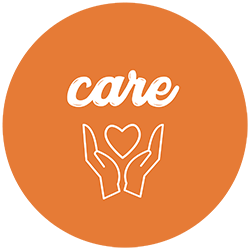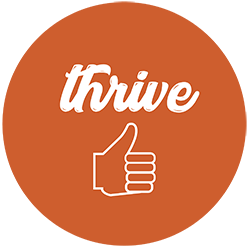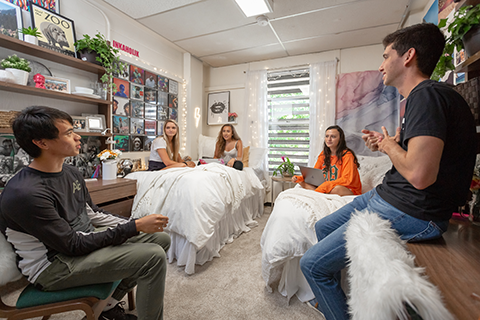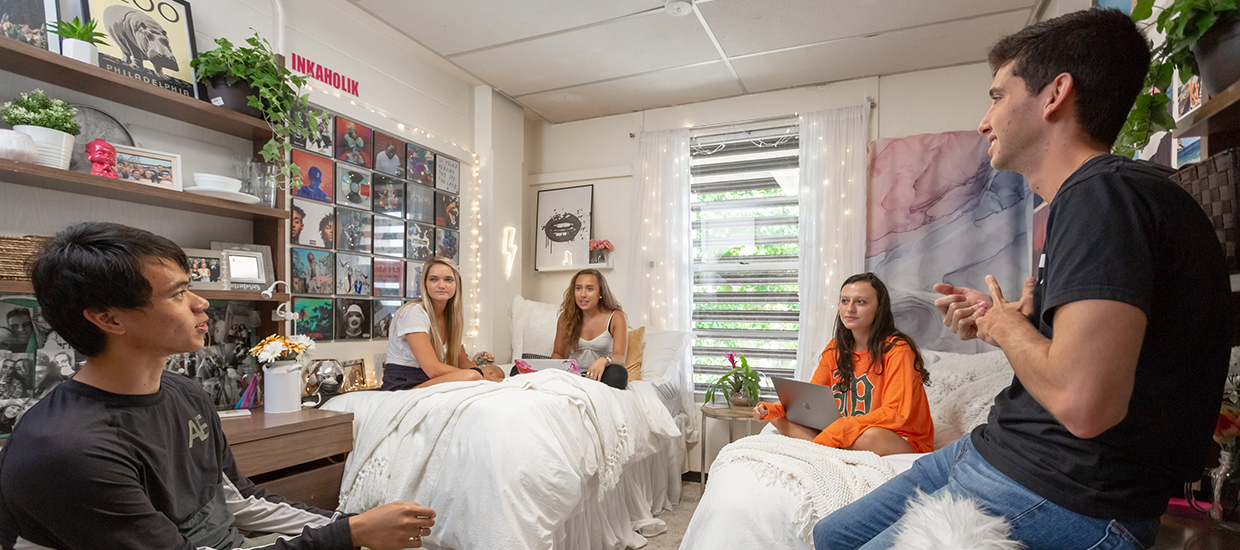Resident Engagement
Student Housing for Student Success: Through intentional engagement with resident students, HRL focuses its efforts on developing students both personally and professionally throughout their time on campus. By living on campus, students are footsteps away from a variety of academic, cultural and social experiences that are hard to get elsewhere.
As a result of the residential experience, resident students can expect to:
|

|
Connect: Engage and connect with the campus community
- Engage with fellow community members
- Experience different people and ideas
|
|

|
Care: Learn ways to take care of yourself
- Recognize habits that promote a healthy lifestyle
- Identify appropriate resources and interventions related to physical and mental wellness
|
|

|
Explore: Discover and discuss new ideas outside of the classroom
- Interact with faculty and University leaders in the residential setting
- Discuss intellectual topics with faculty and fellow community members
|
|

|
Thrive: Develop skills to thrive beyond UM
- Discover tools and strategies promoting the advancement of interpersonal skills
- Recognize the resources and behaviors that promote academic, intrapersonal and professional success
|
What to Expect During Your First Year Living on Campus
Living on campus during your first year is a signature part of the UM experience. Residential first-year students live within one of our five Residential Colleges: Coral, Eaton, Ibis, Mahoney, and Pearson. In the Residential Colleges, you will be surrounded by a supportive community of Residential Faculty, peer student leaders like First-Year Fellows and Resident Assistants, and a plethora of professional staff who are here to guide you during your transition to college. Click the link below to learn more!
First Year Experience
Residential Colleges
The University of Miami's Residential Colleges support and enhance student learning and engagement through interactions with live-in faculty and student affairs staff, as well as a wide range of programming, seminars, lectures, field trips, and recreational activities throughout the academic year.
View All Residential Communities









